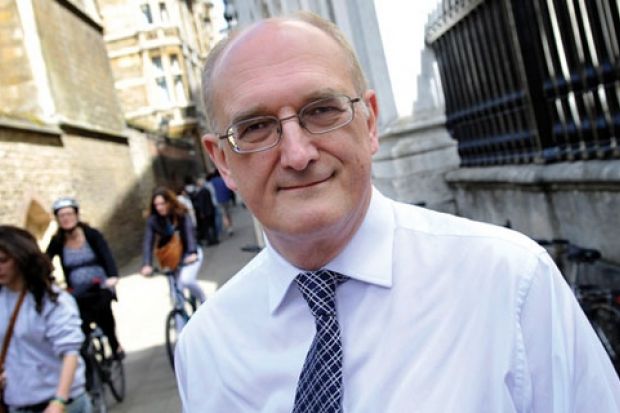Universities' efforts to produce economic growth will suffer if that becomes their primary goal, the vice-chancellor of the University of Cambridge has warned.
In a speech to be delivered at the 10th anniversary conference of the League of European Research Universities in Barcelona on 10 May, Sir Leszek Borysiewicz was to say that although universities hold the key to growth, it must not become their driver.
"Universities' contribution to the economy is so effective precisely because it is not our primary objective," he was to tell the conference. "Economic productivity is a by-product of the teaching and research that we perform for other reasons."
Despite institutions increasingly touting their ability to support the economy when making their case for funding, the message must be that universities' wider goals and blue-sky research are what make them successful, Sir Leszek was expected to say.
"If [growth] were turned into a primary objective - if universities became the research and development branch of Big Industry - then our distinctive contribution would be lost."
The former chief executive of the Medical Research Council was also expected to plead with funders not to cut spending on basic research.
"Today's pharmaceutical research relies on yesterday's blue-skies research," he was to say. "Although the pipeline from one to the other is long...it is evident that the pipeline must not be broken - the basic research we do now will be applied by our successors in the years to come.
"We must not leave the cupboard bare for them."
The warning comes at a time when UK academics fear that the government's desire for short-term gain will harm basic research.
Despite the budget ring fence for public research funding, academics are increasingly encouraged to demonstrate evidence of their work's impact, while at least one research council has aligned its portfolio according to areas of "national importance".
Sir Leszek was set to describe his own university's great commercial success, through the "Cambridge phenomenon" of high-tech companies built up around the university, as something that was both unplanned and unexpected.
"It is hard to imagine that it would have been more successful if the university had deliberately set out to create that economic effect."
However, he was also due to say that there was a place for applied research in universities, and that Cambridge's success lay in being able to offer companies in its cluster access to a spectrum of research from fundamental to applied.
Sir Leszek was also to take the opportunity to appeal to the European Union over its research funding programme for 2014-20, Horizon 2020, which for the first time is aimed at explicitly funding innovation as well as research.
He was due to call for the EU to recognise that funding for all types of research would be needed.
"In designing Horizon 2020...the EU should recognise that it is university research, both applied and 'not yet applied', that produces the sustainable, long-term growth that Europe desperately needs."
Register to continue
Why register?
- Registration is free and only takes a moment
- Once registered, you can read 3 articles a month
- Sign up for our newsletter
Subscribe
Or subscribe for unlimited access to:
- Unlimited access to news, views, insights & reviews
- Digital editions
- Digital access to THE’s university and college rankings analysis
Already registered or a current subscriber? Login
